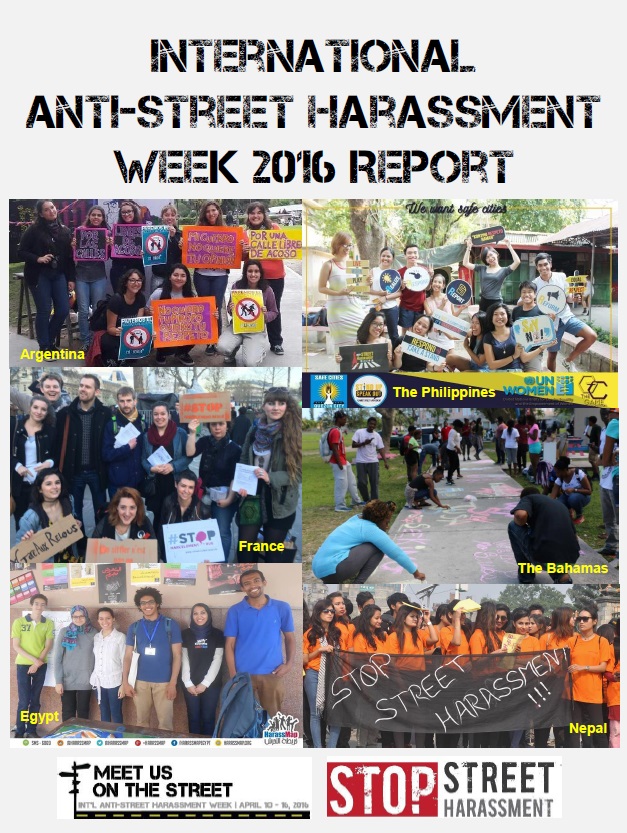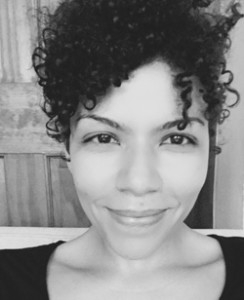Cross-posted with permission from SallyOReilly.com.

You’ve probably already heard about the new Calvin Klein advertising campaign. It’s worked, that’s for sure, in that Twitter and Facebook can’t get enough of complaining about it. And of course the pro-sexism and creepy factions can’t get enough of defending it and lashing out at people who recognise it for what it is – blatant sexist glamourisation of and dismissal of sexual harassment.
It’s so depressingly predictable. I almost didn’t write about it because I don’t want to give the advertisers my attention when I have better things to do right now – like eat lunch for example.
However, I’m incensed. I’ll be brief (that’s not a pun).
This new campaign features butt selfies, dodgy slogans, curiously vagina-like grapefruit and ‘upskirt’ shots of a girl who is not only not annoyed but is kind of, pleased looking. Because it’s flattering to have an upskirt shot taken right? At least that’s what they want us to think. They want us to think that women should be pleased to be objectified, and that being available in this way is what female sexuality is about. That this is erotica (yes ..they’ve actually officially called it “Erotica”). After all, women are the target market – right? (!!??)
“Eat_in #MyCalvins”
#RollsEyes
This shot, despite vast amounts of complaints (which I’m THRILLED about) is still live on their Instagram account as I type.
It is appalling, and utterly lacking in awareness and basic empathy, that womens’ experiences of sexual assaults and sexualisation are being normalised and packaged as ‘Erotica’ in this way.
Erotic for whom exactly? Well, I think we can answer that..
But that’s Calvin Klein for you. I don’t know if you’re aware of this but if you have a teenage daughter who has recently insisted that you buy her CK underwear there is a very real chance that on her Instagram there is now a shot of her in said underwear, possibly with some sideboob showing and a host of ‘likes’ from strangers, hashtagged #MyCalvins or #meandmycalvins.
This is grooming.
At ‘best’, teenaged girls are being trained to view themselves as sexual objects without desires of their own. At worst the brand is encouraging underaged girls to pose in ways that will attract sexual predators and who will grow up to believe that their function is to look and be sexually available and to be OK with , indeed to like with being viewed as such. How is that erotic for them?
And now, these predators can feel more OK about it, after all the ads have gone viral and teens themselves are hashtagging away, blissfully unaware of the sinister side of their online activities.
I’m concerned, very concerned.
Please engage your teenagers in a conversation about this when you get a chance and consider signing any online petitions you can find. While there is the irritating reality that we are giving CK more publicity here, there is a more positive reality too – people are beginning to see how very real the threat of advertising is to the self esteem and sexuality of our women and girls. And people power is a real thing.
Meanwhile – #NotBuyingIt.
Sally O’Reilly is a psychologist, psychotherapist & clinical supervisor based in East Cork, Ireland. She holds the European Certificate of Psychotherapy from the EAP and is a graduate member of the Psychological Society of Ireland. Visit her websites and follow her on Twitter, @psychosal.



 Shahida is a summa cum laude graduate of Columbia University graduate school and is the author of four books, including
Shahida is a summa cum laude graduate of Columbia University graduate school and is the author of four books, including  Tharunya is an urban planner and architect with a passion for issues of social, environmental and spatial justice, including the gendered ways in which urban spaces are designed and function. As a middle-class well-educated Indian woman in a large cosmopolitan city in the subcontinent, she constantly works to expand her understanding of gender, privilege, discrimination, and systemic oppression in her country and environment. She has a particular interest in including men in conversations around women’s issues and the ideas of safety, respect, and consent. She has a bachelor’s degree in architecture and a master’s degree in City and Regional Planning from the Georgia Institute of Technology, where she will be returning to obtain a degree in Geographic Infomations Systems Technology later this year.
Tharunya is an urban planner and architect with a passion for issues of social, environmental and spatial justice, including the gendered ways in which urban spaces are designed and function. As a middle-class well-educated Indian woman in a large cosmopolitan city in the subcontinent, she constantly works to expand her understanding of gender, privilege, discrimination, and systemic oppression in her country and environment. She has a particular interest in including men in conversations around women’s issues and the ideas of safety, respect, and consent. She has a bachelor’s degree in architecture and a master’s degree in City and Regional Planning from the Georgia Institute of Technology, where she will be returning to obtain a degree in Geographic Infomations Systems Technology later this year. Mariel is a recent college graduate, feminist, and women’s rights activist. Although she received her degree in Nutritional Sciences, she plans to pursue graduate degrees in the fields of Public Policy and Women’s Studies to turn her volunteer activism into a career. She began her activism as a confidential crisis advocate for sexual and domestic violence survivors for Rutgers University’s Office of Violence Prevention and Victim Assistance. Since her training, she has become completely immersed into the field of women’s health and rights. Currently, she volunteers for a number of different organizations, including the Planned Parenthood Action Fund of New Jersey and the New Jersey Coalition Against Sexual Assault. She is passionate about ending sexual violence, and is determined to see the elimination of rape culture in her lifetime. You can follow her on Twitter at @
Mariel is a recent college graduate, feminist, and women’s rights activist. Although she received her degree in Nutritional Sciences, she plans to pursue graduate degrees in the fields of Public Policy and Women’s Studies to turn her volunteer activism into a career. She began her activism as a confidential crisis advocate for sexual and domestic violence survivors for Rutgers University’s Office of Violence Prevention and Victim Assistance. Since her training, she has become completely immersed into the field of women’s health and rights. Currently, she volunteers for a number of different organizations, including the Planned Parenthood Action Fund of New Jersey and the New Jersey Coalition Against Sexual Assault. She is passionate about ending sexual violence, and is determined to see the elimination of rape culture in her lifetime. You can follow her on Twitter at @ Deborah is a recent MSW graduate who also received certification from American University’s Women and Politics Institute and Rutgers’ Center on Violence Against Women and Children. In addition to social work, Deborah is looking to pursue an MPP/MPA in order to help create policies that empower many different members of society, particularly those who are dealing with trauma. Deborah hopes to use her passion and skills to continue advocating and writing for human rights, gender and racial equity, trauma, HIV and AIDS, reproductive health and maternal care, LGBTQ issues, and economic inequality. In addition to social justice issues, Deborah is also extremely passionate about the arts (theater, writing, film, television, fine art, poetry, performance art), history, and Hamilton.
Deborah is a recent MSW graduate who also received certification from American University’s Women and Politics Institute and Rutgers’ Center on Violence Against Women and Children. In addition to social work, Deborah is looking to pursue an MPP/MPA in order to help create policies that empower many different members of society, particularly those who are dealing with trauma. Deborah hopes to use her passion and skills to continue advocating and writing for human rights, gender and racial equity, trauma, HIV and AIDS, reproductive health and maternal care, LGBTQ issues, and economic inequality. In addition to social justice issues, Deborah is also extremely passionate about the arts (theater, writing, film, television, fine art, poetry, performance art), history, and Hamilton. Hope is a full-time undergraduate student studying public health and Spanish in Chicago, IL. After graduation in Spring 2017, Hope wants to return to her hometown of Cleveland, OH, and help work on outreach programs to improve the overall health of the community by focusing on minorities and high risk populations. Street harassment is intimately linked to the health of women, and as such is a serious public health issue. During her time in Chicago, Hope has participated in many protests and events trying to call awareness to women’s issues on campus and in the broader Chicago community. Her role model is Michelle Obama, a powerful woman who has devoted her life to many great causes like children’s health equity, the advancement of young women, and gender equality. If you want to keep up with Hope you can follow her on Twitter @
Hope is a full-time undergraduate student studying public health and Spanish in Chicago, IL. After graduation in Spring 2017, Hope wants to return to her hometown of Cleveland, OH, and help work on outreach programs to improve the overall health of the community by focusing on minorities and high risk populations. Street harassment is intimately linked to the health of women, and as such is a serious public health issue. During her time in Chicago, Hope has participated in many protests and events trying to call awareness to women’s issues on campus and in the broader Chicago community. Her role model is Michelle Obama, a powerful woman who has devoted her life to many great causes like children’s health equity, the advancement of young women, and gender equality. If you want to keep up with Hope you can follow her on Twitter @ Minying is a 19-year-old British-born Chinese student from Cambridge, England. She is studying for a BA in Spanish and Arabic at Oxford University and is currently on her Year Abroad in Amman, Jordan,
Minying is a 19-year-old British-born Chinese student from Cambridge, England. She is studying for a BA in Spanish and Arabic at Oxford University and is currently on her Year Abroad in Amman, Jordan,  Manish is a Professor of Criminal Justice at Stockton University where his research focuses on examining sexual harassment, gender empowerment, spousal abuse and policing issues. It is grounded in policy, international and comparative research. He teaches both undergraduate and graduate students. His research has appeared in International Criminal Justice Review, Policing: An International Journal of Police Strategies & Management, Asian Journal of Criminology, and Journal of Criminal Justice and Security, and in many prominent media outlets including NY Times, India Today and The Economic Times. He was recognized with President’s Outstanding New Scholar Award by the Western Social Science Association in 2015. He frequently consults organizations on sexual harassment and gender issues. Manish earned his doctorate at Michigan State University and has Masters in Statistics, from India (Delhi) and Canada (Newfoundland). You can follow him
Manish is a Professor of Criminal Justice at Stockton University where his research focuses on examining sexual harassment, gender empowerment, spousal abuse and policing issues. It is grounded in policy, international and comparative research. He teaches both undergraduate and graduate students. His research has appeared in International Criminal Justice Review, Policing: An International Journal of Police Strategies & Management, Asian Journal of Criminology, and Journal of Criminal Justice and Security, and in many prominent media outlets including NY Times, India Today and The Economic Times. He was recognized with President’s Outstanding New Scholar Award by the Western Social Science Association in 2015. He frequently consults organizations on sexual harassment and gender issues. Manish earned his doctorate at Michigan State University and has Masters in Statistics, from India (Delhi) and Canada (Newfoundland). You can follow him  Ginger is a full-time reporter and long-time New Yorker with over 10 years of experience writing about health and wellness. Ginger is also a member of Brooklyn Movement Center’s No Disrespect anti-street harassment team, and is dedicated to deepening the conversations surrounding the causes of gender-based harassment and violence, and the intersections of race. She’s also a poet and essayist, currently working on a collection of poems on the impact of colorism on Black women and girls. She holds a BA from Howard University. Ginger enjoys drinking strong coffee, wearing shoes, listening to podcasts, and biking, and has an irrational fear of small talk and flying insects. Follow Ginger on Twitter at
Ginger is a full-time reporter and long-time New Yorker with over 10 years of experience writing about health and wellness. Ginger is also a member of Brooklyn Movement Center’s No Disrespect anti-street harassment team, and is dedicated to deepening the conversations surrounding the causes of gender-based harassment and violence, and the intersections of race. She’s also a poet and essayist, currently working on a collection of poems on the impact of colorism on Black women and girls. She holds a BA from Howard University. Ginger enjoys drinking strong coffee, wearing shoes, listening to podcasts, and biking, and has an irrational fear of small talk and flying insects. Follow Ginger on Twitter at  Turquoise is a 26-year-old freelance journalist, program manager at the Wichita Women’s Initiative Network, and a junior at Wichita State University. Upon graduating she plans to attend a joint Juris Doctor/Masters of Social Work Program. A California native, with a background in youth development and law enforcement, her current work focuses primarily on women, children and gender. In Fall 2015 she expanded her fieldwork and academic studies outward from California to the Midwest with the intention of expanding women’s services in underserved states such as Kansas. Turquoise is an avid public educator and presents regularly as the founder of SHERO Coalition (SHERO Co). Feel free to follow her on twitter @
Turquoise is a 26-year-old freelance journalist, program manager at the Wichita Women’s Initiative Network, and a junior at Wichita State University. Upon graduating she plans to attend a joint Juris Doctor/Masters of Social Work Program. A California native, with a background in youth development and law enforcement, her current work focuses primarily on women, children and gender. In Fall 2015 she expanded her fieldwork and academic studies outward from California to the Midwest with the intention of expanding women’s services in underserved states such as Kansas. Turquoise is an avid public educator and presents regularly as the founder of SHERO Coalition (SHERO Co). Feel free to follow her on twitter @